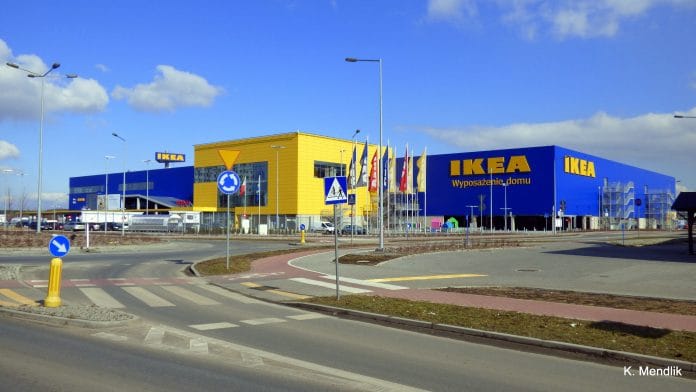New Delhi: In a green push, Swedish firms Tetra Pak and Ikea have pledged to adopt renewable energy and develop completely recyclable products. The companies discussed their plans in this direction at an India-Sweden dialogue chaired by Swedish King Carl XVI Gustaf in New Delhi Tuesday.
King Gustaf and Queen Silvia are in India on a five-day visit from 2-6 December.
Food packaging major Tetra Pak is working towards greater recycling through its technology, while home furnishings giant Ikea is pushing for a complete shift to renewable energy.
The Tuesday meeting on circular economy approaches in India discussed initiatives under way towards tackling the issues of air pollution and waste in India. Senior Indian and Swedish government officials and other stakeholders attended the event.
Some India-Sweden partnerships that are introducing innovative technologies for monitoring air pollution, mitigating carbon emissions, and products made from biomass waste, also featured at the meeting.
Tetra Pak plans
Tetra Pak India managing director Ashutosh Manohar said the company is working with NGOs to set up collection chains that would allow more of its products to get recycled.
The company is working on developing a technology that would allow it to recycle its packages back into new packages, which is currently not allowed due to food safety regulations, said Manohar, adding 52 per cent of Tetra Pak’s products are recycled but lack of proper collection mechanism causes the remaining to end up in landfills.
He also said fossil fuel-derived polyethylene, which was used in Tetra Pak’s packaging products predominantly made of paper, has been replaced with polymers derived from plants.
He said the company now aims to shift entirely to green energy by 2030. At present, 30 per cent of its electricity needs are met through renewable sources.
The company’s carbon footprint is stagnant at 2010 levels, and will remain so until 2030, he claimed.
Also read: India answers Sweden’s Kashmir concerns, but brings up Pakistan terror threat too
Ikea’s push
Marius Martinius, purchasing manager, South Asia, Ikea, said the company will make its operations more eco-friendly and is focusing on three key areas towards this.
The first is to build a circular business model that ensures most products can be recycled or reused. The second is Ikea’s planned shift to 100 per cent renewable energy. The third is marketing more home devices that run on renewable energy developed within a consumer’s home.
Last week, the Swedish major announced its decision to invest €200 million (around Rs 1,600 crore) to speed up its transformation into a ‘climate positive’ business. The investment will focus on pushing the Ikea supply chains into using renewable energy and to remove carbon from the atmosphere through reforestation, restoration of degraded forests and better forest management practices.
Tackling climate change
The dialogue in Delhi was held in a push for sustainable development. Sweden is a major proponent for technologies to tackle climate change.
Ibrahim Baylan, Swedish Minister for Business, Innovation and Enterprise, said, “Air pollution and climate change are essentially two sides of the same coin.
“In Sweden, our global impact in emissions and otherwise is limited but we still have certain targets to become the first fossil free society. We are working towards the innovation in making carbon free steel and carbon neutral cement and concrete by 2030.”
The dialogue coincided with the second day of the UN Conference on Climate Change in Madrid, which has already highlighted the urgent need to cut global emissions.
K. VijayRaghavan, Principal Scientific Adviser to the Government of India, co-chaired one of the sessions at the event and emphasised Prime Minister Narendra Modi’s commitment to combating climate change.
While Ikea and Tetra Pak demonstrated their products made from recycled materials, other presentations were also made.
Swedish telecom firm Ericsson did a real-time demonstration of its NB-IoT (narrowband internet of things) air pollution monitor, developed in partnership with IIT-Kanpur. Tech developer Bioendev, which recently launched its agri-waste to biocoal plant in Punjab, also shared its plans for helping India’s crop residue waste problem.
Also read: Persistent carbon emissions signal global climate goal is out of reach






